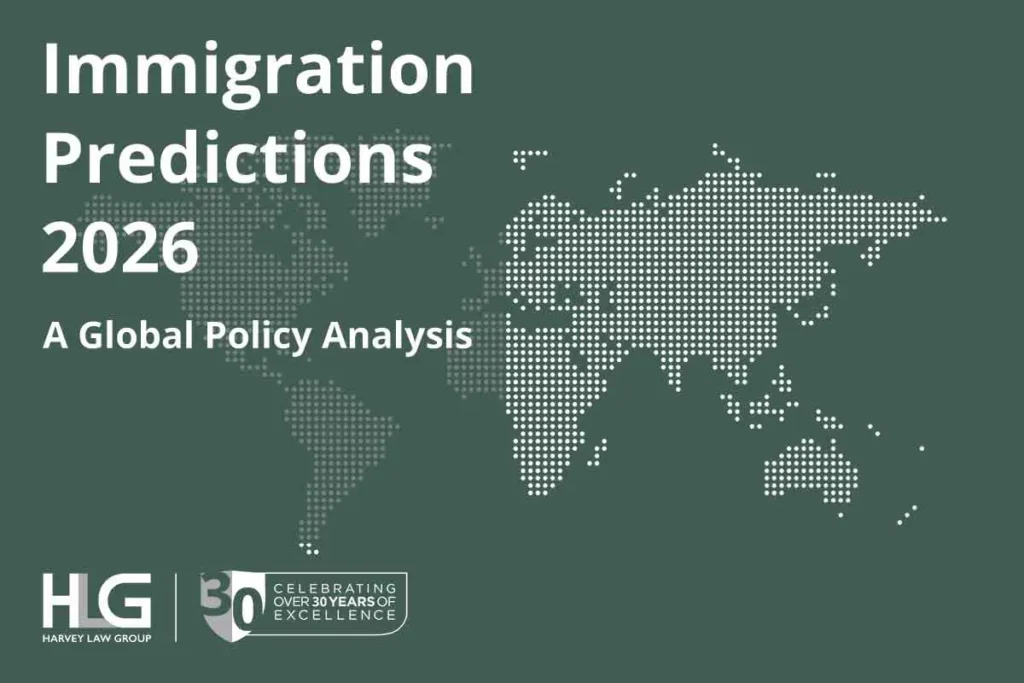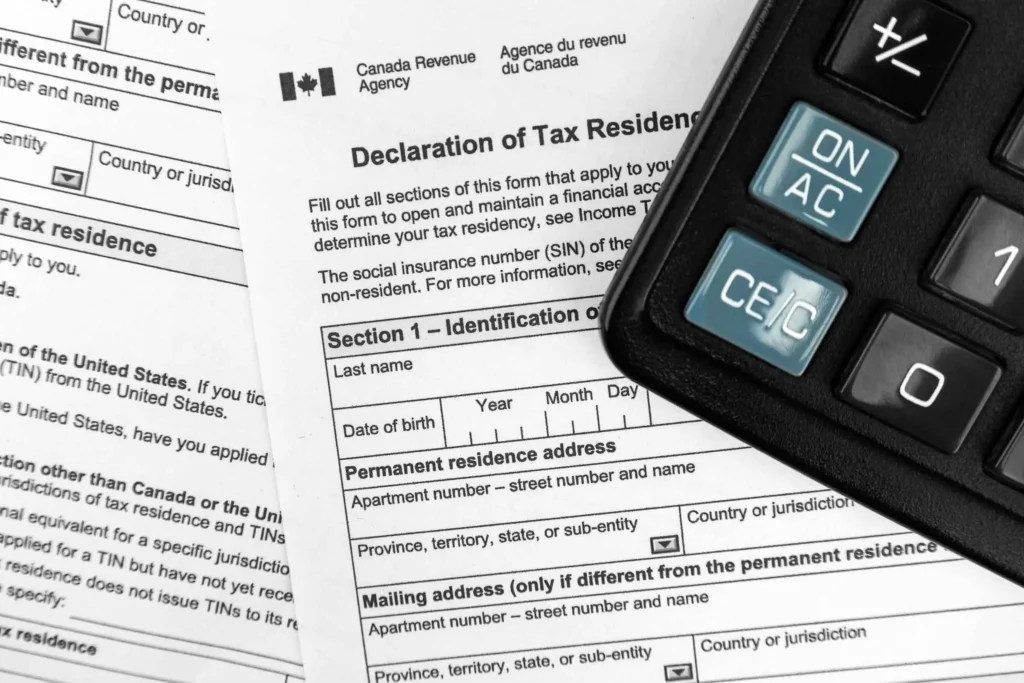Estate planning across borders is a complex game that can cost millions in unnecessary taxes and legal headaches if not done correctly. In the news regularly are stories of families who lose significant portions of their seven-, eight-, or nine-figure estates because they didn’t properly structure their assets internationally.
Traditional estate planning falls short for dual citizenship holders who live a global lifestyle. A California revocable living trust might protect assets in Silicon Valley, but it won’t help with a villa in Portugal or Singaporean investment accounts. Each jurisdiction plays by different rules.
That’s why successful multi-citizenship holders need a comprehensive asset protection scheme. This guide breaks down the exact steps to protect a cross-border legacy, minimize global tax exposure, and ensure heirs have access to their inheritance – no matter where the assets are located.
Step 1: Map Your Global Assets and Jurisdictions for Further Estate Planning
The first step in protecting your estate is knowing exactly what you’re protecting. In Harvey Law Group’s three decades of practice, we rarely meet clients who can correctly identify all their assets on the first attempt. Typically, clients overlook a key asset here and there.
Inventory of Your Assets
Start by creating a comprehensive inventory of all your assets. Here’s what your global asset inventory should track:
- Legal documents
- Physical money accounts
- Intellectual property rights
- Business interests and shares
- Life insurance benefits and policies
- Personal property of significant value
- Real estate holdings and property rights
- Digital assets (cryptocurrency, online businesses, etc)
- Former and current married couple’s shared documents
- Bank accounts and balances (savings accounts, investment portfolios, pension funds, etc)
Start with listing bank accounts and property. Your attorneys and financial planners should be apprised of all your assets and the jurisdictions those assets are subject to. Below, we’ll also discuss the importance of identifying where these assets live. Knowing what you own is just the start.
(You might also be interested in: EB2 Visa United States – Requirements & Process 2024)
Evaluating Respective Jurisdictions
A recent client discovered their “Canadian” investment account was actually registered in Jersey, which completely changed their tax liability and estate planning needs. As an international person, you need to understand how each jurisdiction views and taxes these assets.
(Read also: Canada Startup Visa – Harvey Law Group)
For instance, revocable trusts are not universally recognized in jurisdictions worldwide. A revocable trust that works perfectly for your US assets could be disregarded by countries like France or Spain who practice civil law. Your experienced estate planning lawyer needs to navigate these differences.
Asset location can be more confusing than most assume. Consider multinational companies – The corporate shares might be registered in Delaware. However, the underlying assets, intellectual property, and royalties may exist globally. And take cryptocurrency for example. While you access your wallet from Singapore, the actual assets could be “located” wherever the private keys are stored. Especially in these industries, international borders are increasingly blurred.
Each jurisdiction has its own rules about:
- How assets transfer (and if death taxes are to be levied upon death designation)
- Rights of surviving spouse and family members (i.e. beneficiaries)
- Which assets are included in your estate
- Tax liability and reporting requirements
- Probate process and administration
Your estate planning costs may increase with each jurisdiction involved. What matters to your heirs is not necessarily where you are a citizen. On the contrary, what matters is where these assets are located, to which jurisdiction they are subject, and where the beneficiaries live. All these factors affect how your estate’s assets will be handled after your death.
Yet, as industry experts and attorneys note, global investors can avoid paying massive federal estate taxes and fees later if they plan properly now.

Step 2: Building Your International Estate Plan
A poorly structured estate plan can fall apart when heirs need it most. The result? A multi-year court battle across several jurisdictions to recover the assets that beneficiaries were expecting quickly. This is why professional help is not only necessary, but paramount.
Once you’ve mapped your global assets, investors should build a fortress around them. Start with a revocable living trust as a foundation. Though, modern, international estate planning requires many layers of protection that work across borders.
Why Trusts Are Your Best Friend
International trusts are a strong defense and key to the estate planning process.
An irrevocable trust, assets included, in a jurisdiction like the Cayman Islands can protect those assets from creditors and regulators while maintaining tax efficiency. For example, a properly structured Cook Islands trust could save your heirs up to 40% in estate taxes while providing asset protection from civil judgments.
When compared to onshore trusts (i.e. trusts established in one’s home country where they do business, bank, invest, live, among other activities), trusts are often outside the reach of local courts. This international strategy allows high-net-worth individuals to take advantage of the benefits that different jurisdictions offer like specialized trust agreements, access to other markets, and higher privacy standards not available domestically.
Still, even a complex combination of irrevocable trusts, living trusts, testamentary trusts, and bypass trusts can leave some questions unanswered. The structures themselves are often not enough. You need:
- Powers of attorney that function across jurisdictions (many countries won’t honor a U.S. document)
- Digital asset protection strategies for cryptocurrency, intellectual property, and online businesses
- A legally binding living will that international courts will recognize
- Testamentary trust arrangements for minor children trustees
- Clear beneficiary designations that work globally
- Marital trusts for married couples
Different Types of Revocable and Irrevocable Trusts
- An inter vivos trust or living trust, a revocable trust that avoids probate process after the death and quickly distributes the trust’s property to beneficiaries
- A spendthrift trust, which protects their beneficiaries from creditors and controls distributions made by the trustee
- A marital trust (or bypass trust) for their surviving spouse, designed to minimize estate taxes for the married couple
- A testamentary trust, an uneditable, irrevocable trust that will dole out life insurance benefits upon death designation
This layered approach ensures a multi-million dollar estate remains protected regardless of where their heirs live, what legal challenges arise, or to which jurisdictions the property and money were subject.
Digital Asset Protection Strategies
Physical assets differ entirely from online property. Crypto investors and those who operate businesses entirely remotely are familiar with this dynamic.
In the case of digital asset protection, many crypto investors have a plan in place if they become incapacitated. For example, some investment platforms like Casa or Unchained allow their users to set triggers to automatically transfer digital assets to trust companies if they detect a certain period of inactivity. Triggers, alerts, automations, and plans like this could protect online persons’ money and property without compromising security during their lifetime.
More than just passing on money from trustee to beneficiary, estate planning is about ensuring your legacy across generations and jurisdictions. Work with a credible estate planning attorney who understands both common law and civil law systems to receive the best possible support and estate management.
Read Also: How Citizenship by Investment Supports Legacy Planning

Step 3: Minimizing Global Estate Tax Impact
Most mistakes when structuring living trusts, naming minor children as beneficiaries, and avoiding punitive estate taxes are avoidable. Unfortunately, many investors ignore double taxation treaties and do not manage their holdings and property properly.
The third step of estate planning considers the global taxation impact to which your assets are subject and helps you manage it accordingly.
Inheritance Taxation Differs Globally
Federal estate tax is just the beginning. On either an individual person’s or a married partners’ estates, states and the federal Internal Revenue Service can levy duties of 50%. However, if you hold US citizenship and invest globally, local tax should not be your only concern.
This taxation policy is just one reason many American citizens use international trusts and plan their estates abroad. Regardless, each jurisdiction where you hold assets may want their share. France assesses fees on inheritances over €100,000 at rates up to 60%. Japan’s inheritance taxation policy requires asset holders to pay up to 55% on estates over ¥600 million.
Without proper planning, your estate could face even higher taxation rates when multiple countries claim taxation rights. Here’s what ultra wealthy families need to know about global taxation exposure:
FATCA and FBAR Compliance for US Citizens
The Foreign Account Tax Compliance Act (FATCA) and Report of Foreign Bank and Financial Accounts (FBAR) require foreign banks and other institutions to collect information on and report account balances and transactions of US citizens to the United States Internal Revenue Service. A person who fails to report foreign financial accounts may have to pay penalties up to 50% of the account value per year.
For US citizens, FATCA and FBAR compliance adds another layer of complexity to estate planning.
Tax-Efficient Transfer of Assets
To maximize the value of their estates for the beneficiaries, investors want to reduce their estate tax liability and prevent a probate process as much as possible. Here are a few more options:
- Using a charitable remainder trust (an irrevocable trust) for US assets
- Setting up life insurance in estate tax-advantaged jurisdictions
- Transferring assets to beneficiaries during lifetime to avoid probate
- Leveraging international treaties to avoid double taxation
- Structuring ownership of holdings in a tax-efficient manner
Many countries offer double taxation treaties or special regimes for tax residents. Several Caribbean countries that also host citizenship by investment programs, for instance, do not require residents to pay any inheritance, estate, or death taxes.
Read Also : RCBI The Future of Secure Global Mobility & Second Citizenship
Combining Smart Tax Strategy with Estate Planning
A successful person with assets in several jurisdictions worldwide can use a combination of effectively plan and optimize their liability:
- A revocable trust for property
- A living trust for current estate planning processes
- A global trust company
- Strategic asset transfers to minimize income tax
- Carefully timed gifts to reduce estate’s assets and circumvent probate
The result? Beneficiaries must pay significantly less in estate tax when holdings are distributed.
Your financial affairs, particularly if they are geographically stretched, need regular review as taxation laws change. What worked five years ago might not be optimal today. A certified financial planner and estate planning attorney can help ensure your structure remains tax-efficient across all jurisdictions.

Step 4: Protecting Assets in Multiple Countries
Rather than in a properly structured global asset protection trust, housing valuable assets in a standard holding company can be a costly mistake.
What’s an Asset Protection Trust?
Asset protection trusts offer a powerful shield for your estate. Unlike a basic revocable trust, these specialized structures – when properly set up in favourable jurisdictions like the Cook Islands or St. Kitts & Nevis – can protect your wealth from future creditors, lawsuits, and even forced inheritance laws in certain countries.
How does it work?
For instance, a person can legally separate a trust’s assets from their personal holdings in what’s called an asset protection trust. Then, a professional trustee manages the financial matters of said trust. According to the trust agreement, beneficiaries can receive income payments or separate property later to avoid probate. Spendthrift provisions and other multi-jurisdictional layers create enhanced protection against creditor claims.
International Company Structures
International companies add another protection level. Corporate structures, such as holding companies, for property and asset protection in business-friendly jurisdictions are common today. Some familiar headquarter locations are as follows:
- British Virgin Islands
- The Cayman Islands
- Hong Kong
- Singapore
- Panama
- Estonia
- Ireland
- United States
Each entity serves a specific purpose as a person manages their overall estate preservation and protection strategy.
Family Foundations
Family foundations offer unique advantages, especially in civil law countries. A client established a Liechtenstein foundation to manage their family wealth across generations, protect remaining assets from inheritance laws, and maintain family governance.
Furthermore, to avoid probate, an attorney worked with the trustee to draft a living trust. They created a structure to pay estate tax- and income tax-efficient distributions to minor children beneficiaries, despite the recipients living in several different countries.
Emergency Access Protocols
Protection means nothing without access. For this reason, emergency protocols are crucial.
A coherent and complete estate plan should include a detailed success plan for trustees and beneficiaries, physical and digital asset recovery procedures, international banking access arrangements, protocols for a surviving spouse, and immediate liquidity provisions for beneficiaries.
Recall that investors must plan asset protection before problems arise. Attorneys often warn that these structures are similar to insurance policies: You cannot buy them after the accident happens.

Step 5: Documentation and Access
Legal documents throughout the estate planning process are critical. One missing form (e.g. a trust agreement) in a jurisdiction home to important property or holdings can freeze the entire estate and distribution process.
The estate planning process demands meticulous documentation and close attention to detail across every jurisdiction where assets are held. A last will and testament must be properly supported by an attorney in each relevant jurisdiction. In some cases, living wills for medical decisions and powers of attorney that work across borders are necessary as well. Additionally, an executor named for each structure before the death designation will properly administer its holdings.
Estate planning attorneys need comprehensive records of all financial accounts, property structures, and access to trust’s assets. Every bank account, every beneficiary designation, and every tax payment must be meticulously tracked. Trustees should store these records with trusted advisors in multiple jurisdictions.
In cross-border estate planning, redundancy means security. Keep at least two document sets for each important structure accessible outside your country of residence.
(You might also be interested in: United States EB5 Visa – USA Investment Visa Program)
Digital Access for Heirs
Digital access has become equally crucial as traditional paperwork. Modern estate planning requires a secure digital vault housing everything from cloud storage credentials to cryptocurrency keys. Digital assets can remain inaccessible for months, if not years, if heirs lack online account credentials and proper authentication protocols.
Probate Process
The arbitration process varies dramatically by country.
While Singapore might require a simple executor declaration, countries like France demand extensive court submissions and tax clearances before assets can be transferred. Probate administration can stall because one jurisdiction required original documents while another refused to release them.
This highlights the importance of selecting estate-friendly jurisdictions, so beneficiaries can avoid this sometimes lengthy and unnecessary process.

Building Your International Advisory Team
The wrong advisor can cost you millions, years of your and your family’s time, and cause needless headaches after a death in the family. Selecting an experienced, sophisticated, knowledgeable estate planning attorney who understands a global estate plan is critical.
Your international advisory team needs three key players:
- An experienced estate planning attorney who understands global legal systems
- A certified financial planner with investment expertise across borders
- A tax specialist who can navigate international treaties
When selecting advisors, ensure they’ve handled cross-border estates, have direct experience in jurisdictions in which you and your family have holdings, and can coordinate with advisors across the globe.
How Harvey Law Group Can Support
While the information contained in this article is for general informational purposes only, Harvey Law Group can help.
Harvey Law Group brings 33 years of experience helping ultra wealthy families protect their legacies across borders. Our team of specialized experts works across 20 global offices to ensure your estate plan works seamlessly in every jurisdiction where you hold assets.
Ready to protect your global legacy?
Contact HLG today for a confidential consultation. Our experienced estate planning attorneys will help you create a comprehensive strategy that protects your wealth for generations to come.
Useful Terms
Revocable Living Trust:
A revocable living trust is a legal document created during an individual’s lifetime that places assets under the management of a designated trustee according to the grantor’s instructions and can be modified or revoked at any time.
Irrevocable Trust:
An irrevocable trust is a legal arrangement in which the grantor permanently transfers assets into the trust, relinquishing control so that the trust cannot be amended or revoked, often yielding tax benefits and stronger asset protection.
Asset Protection Trust:
An asset protection trust is a specialized legal structure set up to legally isolate and safeguard assets from creditors, lawsuits, and other claims by placing them in a trust that operates in favorable jurisdictions.
FATCA and FBAR:
FATCA (Foreign Account Tax Compliance Act) and FBAR (Foreign Bank and Financial Accounts Report) are U.S. regulatory mechanisms requiring foreign financial institutions and U.S. citizens to report details of overseas financial accounts to promote tax compliance and transparency.
Testamentary Trust:
A testamentary trust is established through a will to take effect upon the grantor’s death, managing and distributing assets to beneficiaries according to predetermined instructions without the possibility of alteration once the will is executed.
Marital Trust (Bypass Trust):
A marital trust, also known as a bypass trust, is a legal entity set up to benefit a surviving spouse while helping reduce estate tax liabilities by holding a portion of the estate separately from other assets.
Digital Assets:
Digital assets are non-physical items stored electronically, such as cryptocurrencies, online business rights, and digital documents, that require secure management and transfer protocols in estate planning.
Cross-Border Estate Planning:
Cross-border estate planning is the process of creating a comprehensive legal and financial strategy to manage and protect assets held in multiple countries by addressing varied tax laws, legal requirements, and jurisdictional differences.




